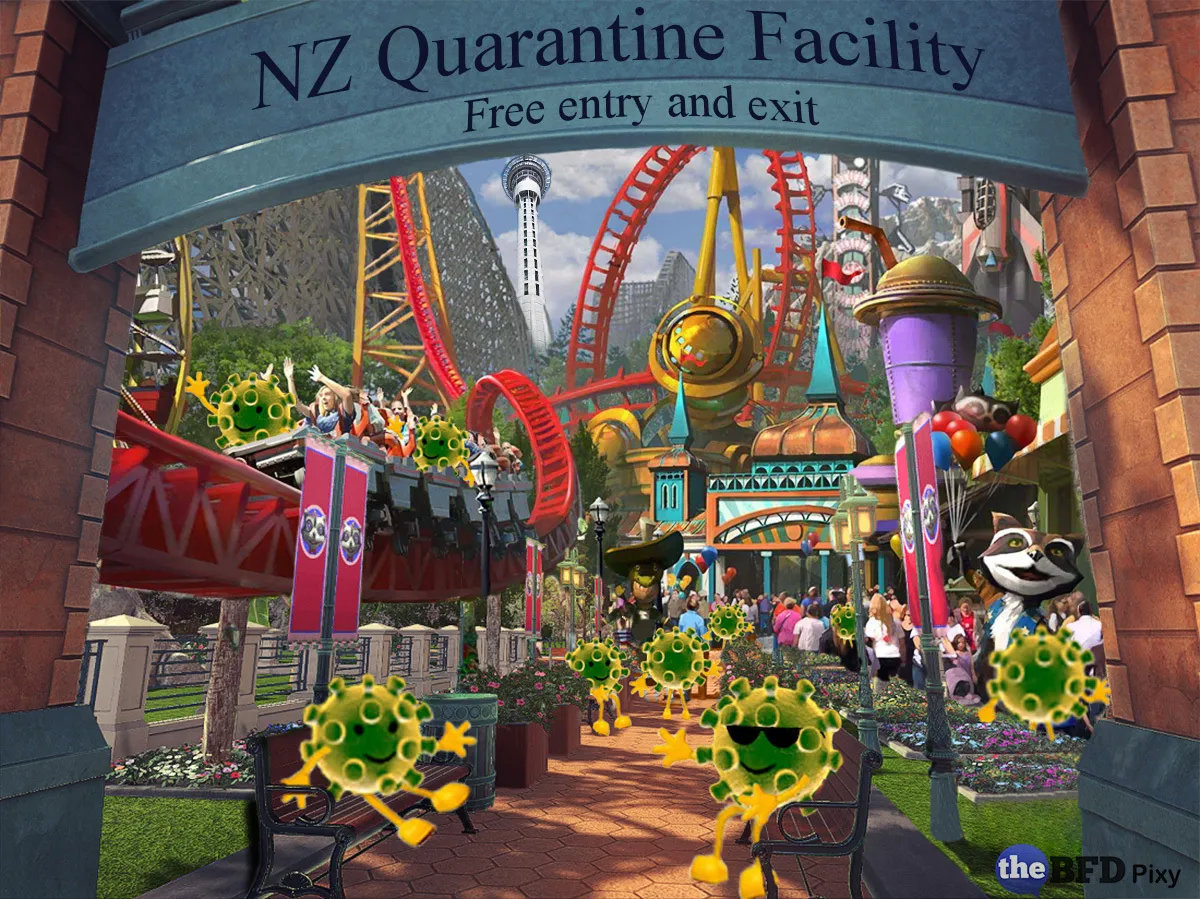Table of Contents
Dr Eric Crampton
nzinitiative.org.nz
Presented as an engineering or operations management problem, it would seem almost impossible to solve.
Thinking about it as that kind problem is now part of the problem at New Zealand’s border.
In the decade before COVID-19, two to three million Kiwis would arrive at the border each year after a short trip abroad. Nobody knew how many might take a trip abroad, where they might want to go, when they might want to travel, or how quickly they would wish to return. Nobody but the travellers themselves knew their budgets, how important it was for any of them to travel on particular dates,or how long in advance they might be able to plan their trips.
Between one and one and a half million Australians would join them each year as visitors, along with hundreds of thousands from the United States, China, the United Kingdom and elsewhere. Nobody knew when they would show up, when they would like to fly, where they would like to stay, what they would like to eat, whether they’d like to rent a car, or where they would like to visit.
And nobody had to.
Imagine being given the task of managing, well, all of that. Of ensuring that each traveller will be able to find a seat on a plane at their preferred time, and that there would be enough taxis and buses at the airport to meet them. Of running the impossibly gigantic spreadsheet slotting visitors into rooms in hotels, motels, Air BnBs or campervans. Of checking that there would be enough tables at the restaurants they might wish to visit.
And, of making sure that there are enough seats on planes for Kiwis who want to return home if some documentary abroad showing a kakapo’s love for Stephen Fry’s head sparked an unexpected surge of interest in visiting New Zealand.
How could any Minister of Travel allocate scarce seats on flights or scarce hotel spaces? How could such a Minister decide whether the family wanting to travel during school holidays should have higher priority than a business traveller needing to reach an international convention?
Nobody could do it, if anyone were ever so mad as to try to approach it as a giant spreadsheet problem. It would suffer every one of the failures that the old Soviet Union experienced in trying to make their central planning system work.
And, fortunately, nobody ever had to. Millions of individual travellers’ plans meshed together with the plans of businesses helping facilitate their travel spontaneously into an order that could have been predicted and designed by no one. If travel during school holidays were popular, prices on flights and in hotels would rise as seats and rooms became scarce – encouraging some travellers to shift to other dates while telling families able to rent out their baches as Air BnBs during those peak times that it might well be worth it.
As early economist Frederic Bastiat put it in the 1800s, despite the lack of central co-ordination of the myriad decisions necessary to effect it, every day, enough food would show up to ensure that Paris was fed.
Unfortunately, the Government has been attempting to use the old Soviet model to run New Zealand’s managed isolation system.
The system obviously is not working.
It has too little capacity and cannot find any reasonable way of reconciling the conflicting demands of tens of thousands of people desperate to get here.
It puts people into queues for managed isolation who, because they come from places without COVID like Taiwan or the Cook Islands, have no business taking up scarce spaces in those facilities. Isolation requirements for those travellers only do harm.
And safety protocols have been slipshod.
Managed isolation of those entering New Zealand from risky places is obviously critically important in keeping the country safe until effective treatment or a vaccine is available. Strict safety standards are essential.
But none of that requires the Government to be handling all of the bookings, or decide who should get which scarce spaces.
What it requires instead is the Government certifying the safety of different facilities, enforcing rules requiring that anyone wishing to travel here from risky places have a booking at one of those Government-approved facilities, and providing financial assistance for those returning Kiwis whose stays in managed isolation the government wishes to subsidise.
With the Government focused on what it could do well in ensuring safety, instead of trying to co-ordinate who gets which rooms and telling airlines how many flights might be allowed, the rest of the system would be able to scale up and adapt.
The pandemic is not going away any time soon. The humanitarian and economic costs of trying to run the border like a spreadsheet will only rise.
If you enjoyed this BFD article please share it.









